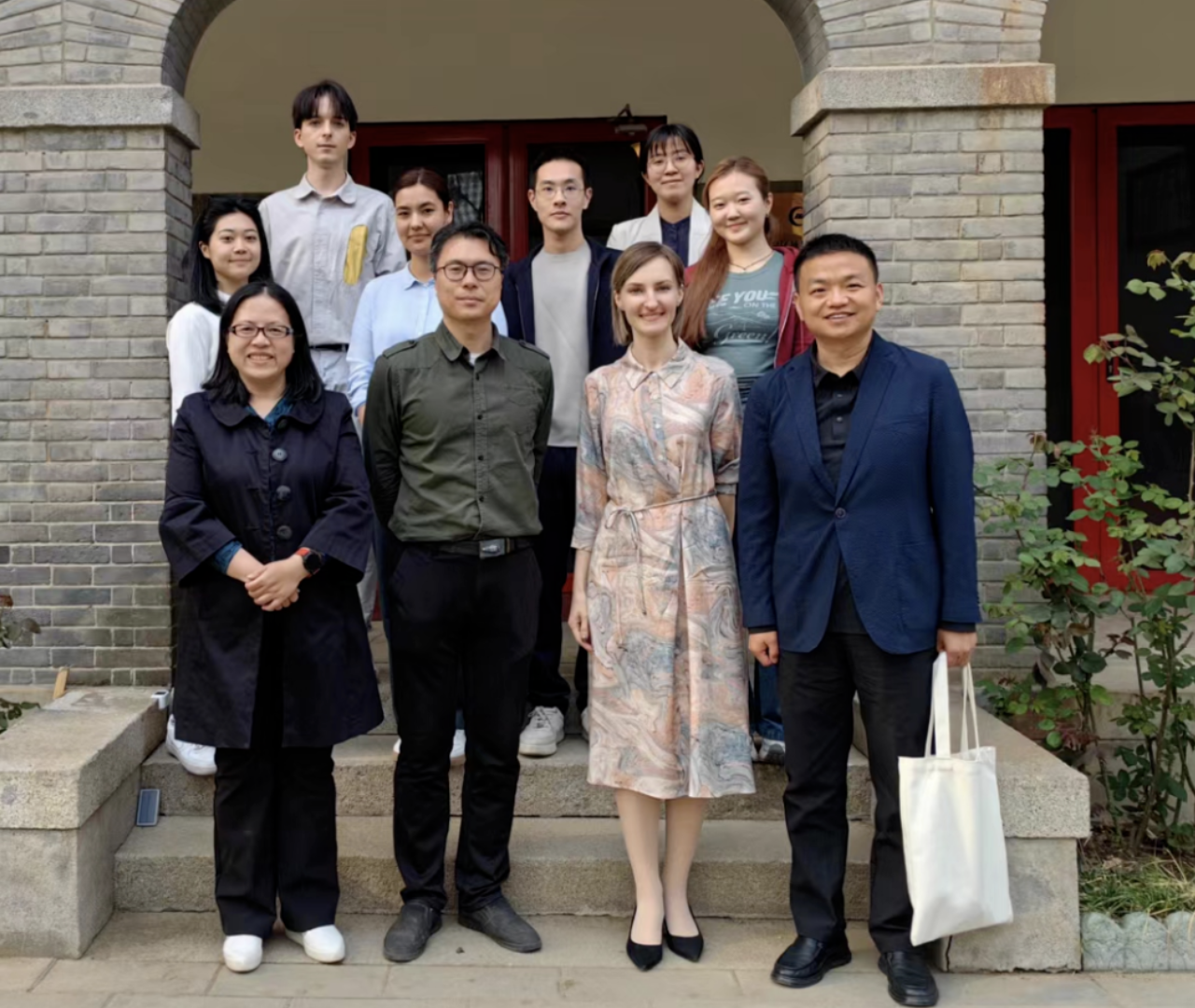
On April 8, 2024, the Institute of Area Studies, Peking University hosted a seminar titled “How Generation Z Youth Understand Themselves and the World,” marking the inaugural event of the “Generation Z” seminar series. Co-organized by the Institute of Area Studies, Institute of International Communication Studies and Office of International Relations, the seminar brought together international students from Russia, Kazakhstan, Kyrgyzstan, Tajikistan, Turkmenistan and Latvia, along with doctoral students from the Institute of Area Studies. Zhang Yongle, deputy director of the Institute, moderated the discussion. Ma Bo, deputy director of the International Students Division, Office of International Relations, and Wei Nanzhi, a research fellow at the Institute of American Studies, Chinese Academy of Social Sciences, provided opening remarks and commentary.
Setting the stage, Prof. Zhang Yongle explained that the “Generation Z” series aimed to foster cross-cultural exchange, promote interconnectivity among young scholars and contribute to the growth of the area and country studies academic community. “Generation Z” refers to those born in the mid-to-late 1990s and early 2000s. The seminar focused on perspectives from international students and doctoral candidates, inviting them to draw upon their diverse academic backgrounds and life experiences to spark intellectual discourse and theoretical innovation.
In his opening remarks, Ma Bo highlighted the fundamental role of self-understanding and global awareness in facilitating cross-cultural exchange. He emphasized the importance of maintaining one’s authenticity while engaging with others and recognizing and appreciating cultural differences. If institutionalized, the “Generation Z” series could become a powerful platform for international cooperation and exchange among youth, he said.
The international student representatives and doctoral candidates then shared their insights and personal journeys. Anzelika Smirnova, a Latvian doctoral student in Journalism and Communication, explored the evolving nature of self-identity, noting how the Internet and digital technologies were reshaping how Generation Z youth perceived themselves and the world around them.
Gulandom Mahmudova, an undergraduate from Tajikistan, recounted the founding of the Central Asian Five Students Association (CASA) at Peking University and expressed gratitude for China’s efforts in promoting cultural understanding. She said she hoped to contribute to further exchanges through future CASA activities.
Akjagu Jumanazarova, a student from Turkmenistan, shared her experience of overcoming cultural barriers and integrating into Chinese society and campus life. During the COVID-19 pandemic, she continued her studies online from her home country, highlighting the power of digital connectivity in enabling educational pursuits.
Malika Zhang, a Kazakh anthropology graduate student, discussed her research on education policy in China. She observed that while globalization and digitization have driven a certain degree of cultural convergence among Generation Z youth, divergences persist due to differences in education levels and cultural backgrounds across regions. As a co-founder of the Central Asian Five Countries International Students Association, Malika said she hoped to bridge connections between Chinese and Central Asian students.
Fan Zhanin, a Kyrgyz student at the Guanghua School of Management, noted that Generation Z youth shared certain values, digital lifestyles and social media habits, facilitating cross-national understanding. However, the generational gap in mindsets remains an undeniable social reality, he said.
David Kolosov, a Russian student from the North Caucasus region, reflected on his journey to China and contrasted how youth in the late 19th and early 20th centuries gained worldviews versus Generation Z youth do so today. While information is more accessible now, he stressed that deep cross-cultural knowledge is still crucial for genuine interconnectivity.
In conclusion, Wei Nanzhi commented on the students’ perspectives, discussing subjectivity in cross-cultural exchange in the information age. She argued that contrary to initially spreading one dominant culture, the Internet had enabled Generation Z youth across regions to assert their cultural identities. In-depth exchanges can foster a more pluralistic global order, she said.
Doctoral representatives Wu Yuhe and Sheng Huaxi shared their experiences, exchanging views with the international students on shared challenges and the diverse lived realities of Generation Z youth.
The seminar sparked a lively interdisciplinary discussion among students and faculty on Generation Z cross-cultural exchanges from historical, political, international relations and communication perspectives. It highlighted this generation’s complexities in navigating self-awareness, worldviews, and cultural identities amid clashes between tradition and modernity, impacts of globalization and digitization and intensifying global conflicts. All present agreed that continuous dialogue is key to shaping an open-minded, internationally engaged Generation Z community committed to building a more peaceful, prosperous world.


